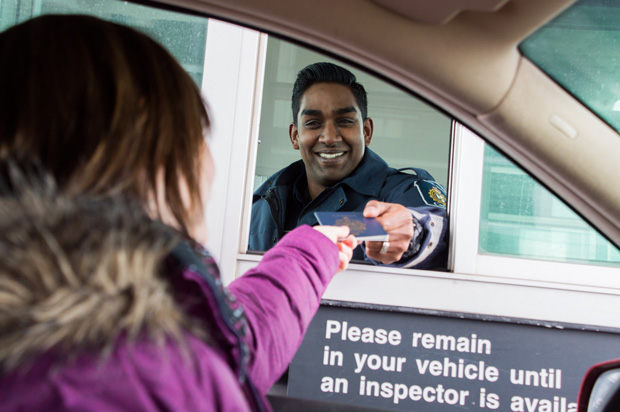Saturday July 1, marks Canada’s 150th anniversary of Confederation, and Canada Border Services Agency (CBSA) is anticipating that border crossings in southern Manitoba will be busy over the holiday weekend.
The following are five tips to make entry to Canada as smooth as possible for visitors traveling north to join the celebrations:
Bring proper ID
You must carry proper identification for yourself and any children traveling with you to help confirm your legal right or authorization to enter Canada when you arrive. If you are a U.S. citizen or permanent resident, you must carry proof of citizenship, such as a passport. If you are a U.S. permanent resident, ensure you carry proof of your status such as a U.S. Permanent Resident Card.
Plan ahead
Arriving at the border in the morning, rather than in the afternoon or evening, gives you the best chance of avoiding lineups. In Manitoba, the CBSA recommends using the Emerson border crossing during peak travel times as it is open 24-7 and has the greatest capacity to process large volumes of traffic. Visit the CBSA website or download the CanBorder App to monitor wait times.
Make a full declaration
Upon arriving in Canada, you must accurately report your goods and answer all questions truthfully. Be ready to make a full declaration. Certain goods may be prohibited or inadmissible to Canada, so do your research beforehand or contact the Border Information Service if you have questions.
Leave fireworks (and firearms) at home
You must have written authorization and import permits to bring fireworks into Canada. To avoid the extra hassle, consider buying them in Canada after you cross the border. The CBSA also strongly recommends that visitors leave any firearms at home, to avoid potential seizure or criminal charges. If you do choose to travel with firearms, you must declare them at the first opportunity and meet all import requirements.
Know the rules on alcohol
To bring alcohol into Canada, you must meet the minimum age where you enter Canada (18 years in Manitoba). Personal exemptions equal approximately two bottles of wine, one bottle of liquor, or a 24-pack of beer – any additional quantities of alcohol are subject to duties and taxes. Provincial limits also apply.
In addition, the CBSA reminds visitors to ensure they are in fact eligible to enter Canada. If you have been convicted of driving while impaired by alcohol or drugs, you will probably be found criminally inadmissible. For information on overcoming criminal convictions, please visit the Immigration, Refugees and Citizenship Canada website.



